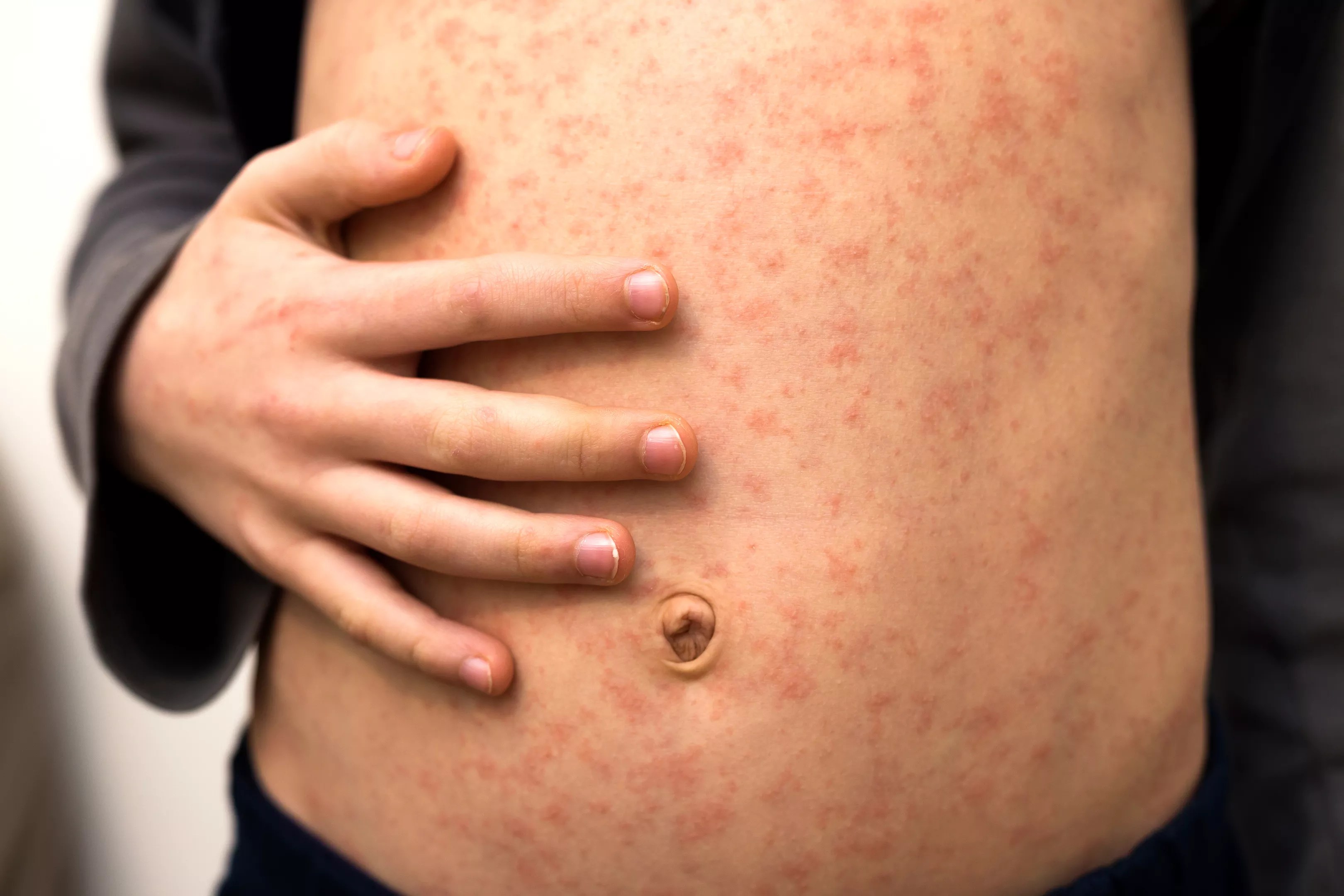
Adobe Stock

Audio By Carbonatix
Measles continues to surge through Texas. As of March 14, Texas Health and Human Services confirmed 259 cases, mostly confined to the initial outbreak area in West Texas, but reports of measles have appeared in the greater Houston area and North Texas. As recently as Feb. 26, the outbreak had infected more than 120 individuals, while one patient, an unvaccinated but otherwise healthy young child, died, according to the state health agency. Since then, the case count has doubled, and local school districts are offering free measles vaccines to combat lowering vaccination rates.
Measles, which is classified as an eliminated disease, is an airborne, highly contagious virus most commonly contracted by children. Before the measles, mumps and rubella (MMR) vaccine was formulated, 500 people would die from the disease annually. The vaccine, 97% effective in two doses, is commonly distributed to infants and again before children begin kindergarten. Of the 259 confirmed cases, only two have been fully vaccinated.
Between 2020 and 2024, the number of vaccinated kindergarteners in Texas dropped by 3%, and the number of vaccinated kindergarteners in Dallas County dropped by 5% in the same time period. Dr. Philip Huang, director and health authority for the Dallas County Health and Human Services Department, recently told the Observer that the overall risk of measles in Dallas is low but not nonexistent. Children in private schools tend to report lower-than-average vaccination rates and are especially vulnerable, he said.
“[Dallas is] not in particular risk. But there are certainly pockets of low vaccination that we’re wanting to minimize,” he said. “It’s an easy fix for people to protect themselves with the vaccine.”
Local Response
The Dallas Morning News reported during the outbreak that Mercy Culture Preparatory, a Fort Worth church-affiliated private school, was “celebrating” having the lowest vaccination rate in the state.
“Shoutout to MC Prep for being the least vaccinated school in Texas!” Landon Schott, pastor of Mercy Culture Church, said in an Instagram video.
The News reported that with a 14.3% MMR vaccination rate, the school is one of six North Texas campuses with fewer than 50% of kindergarteners vaccinated, none of which are public schools. The state requires children to receive the vaccine before enrolling in school, private or public, unless they submit a waiver with extenuating “reasons of conscience,” including religious beliefs.
While the private school boasts low vaccination rates, Garland Independent School District is inviting uninsured students to receive free vaccines at a vaccine clinic in the district. Dallas’ chief of public safety, Dominique Artis, released a memorandum on behalf of the city that states the city’s dedication to targeting especially vulnerable schools.
Based on data provided by the state, the county health department “is working with Dallas schools that have low immunization rates to provide them with information about measles, as well as hosting on-site immunization clinics,” reads the memo.
Anti-Vaccination Efforts
The outbreak is traced to an extremely conservative religious sect in West Texas. The community, the Mennonites, reject most aspects of modernism, including Westernized medicine. The outbreak has been the largest in the state since 1992 and the largest in the country in five years.
The measles vaccine has been the target of debunked conspiracy theories linking immunizations to autism. Its status as a live attenuated vaccine has also drawn attention from skeptics. In a live vaccine, a weakened strain of the virus is injected to spur antibody production, enabling the immune system to adapt to the virus and then provide lifelong protection from future exposure. The live vaccine can cause a slight reaction, usually a rash, but it is not contagious.
“The measles vaccine can occasionally cause a reaction with a rash and fever that mimic measles, but it is not a measles infection and cannot spread to other people,” says the Texas Health and Human Services website.